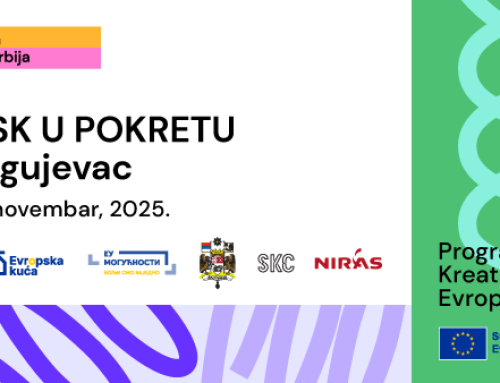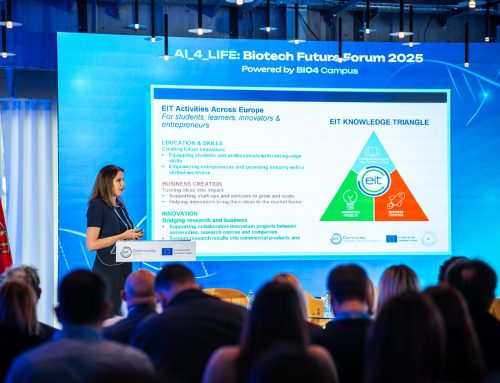In order to be a force for good and at the service of human welfare, technological development must come hand in hand with strong ethics and regulation, said Deputy Head of Delegation of the European Union to Serbia Plamena Halacheva at the Opening Ceremony of the Conference “Designed Society – Artificial Intelligence and Freedom of Expression.
“Every day we are witnessing how click-worthy dominates the newsworthy content, affecting quality journalism, how AI-driven bots are flooding the social media and how algorithms determine our feeds sometimes to the realms of most tragic outcomes, through exacerbating cultural and social prejudices and creating filter bubbles or echo chambers. This is why it is so important to address the topic of artificial intelligence in the context of its regulation and ethics”, said Halacheva.
The European Union recognised this challenge it in its Artificial Intelligence Strategy and proposed the Artificial Intelligence Act – the first-ever legal framework on Artificial Intelligence, which seeks to create a guard-rail for one of the most crucial technologies of our age.

She pointed out that Serbia has been also progressing in the field of artificial intelligence and was the first in the region to adopt an AI Strategy, which compliments its dynamic work in IT and technology field.
“Freedom of expression is one of the fundamental values, on which the European Union is founded, and an issue that is very close to our hearts. In this respect, we welcome the start of work on the pending media reforms. We hope to see further progress in the implementation of the media strategy paving the way to a strong and stable media environment, which can support ethical development of digital media and technology”, Halacheva said.
Minister of Information and Telecommunications of Serbia Mihailo Jovanović said that the development of new technologies poses new challenges to society in the field of freedom of expression and that the problem is that traditional media can be held accountable, even for comments that have been published, while online platforms cannot.

“Increasingly massive spread of digital technologies affects the right to freedom of expression, but Serbia is working on optimising conditions and development with respect for human rights. The emergence of digital technologies also triggered structural changes within the media market, which called into question the survival of traditional media”, the Minister pointed out.
He added that Serbia is in the fourth industrial revolution and sees new technology and digitalisation as a development opportunity.
The conference has been organised by the OSCE Mission to Serbia and the Office of the Representative on Freedom of the Media.

The Head of the OSCE Mission to Serbia Jan Braathu said that the protection of human rights should be the central point of the discussion about the development of artificial intelligence.
“We should not forget this is the issue that affects all of us. It affects human security overall and that is why we have to secure that development of new technology respects human rights. It is also necessary to find mechanisms that will protect us from the potential negative consequences of technological progress”, said Braathu and added that all citizens should be involved in the discussion that will affect the future of civilisation.
The EU encourages the development of science and innovation in order to create the technological prerequisites for the development of competitiveness and economy across Europe.
The support from the EU to innovations and competitiveness in Serbia has amounted to more than EUR 200 million from 2014 up to now. The assets intended for this sector are used for encouraging the increase in the quality of science, innovation and the connection to European and international scientists and entrepreneurs, by which the competitiveness of the Serbian economy is increased.
Photo: OCSE/Milan Obradović




